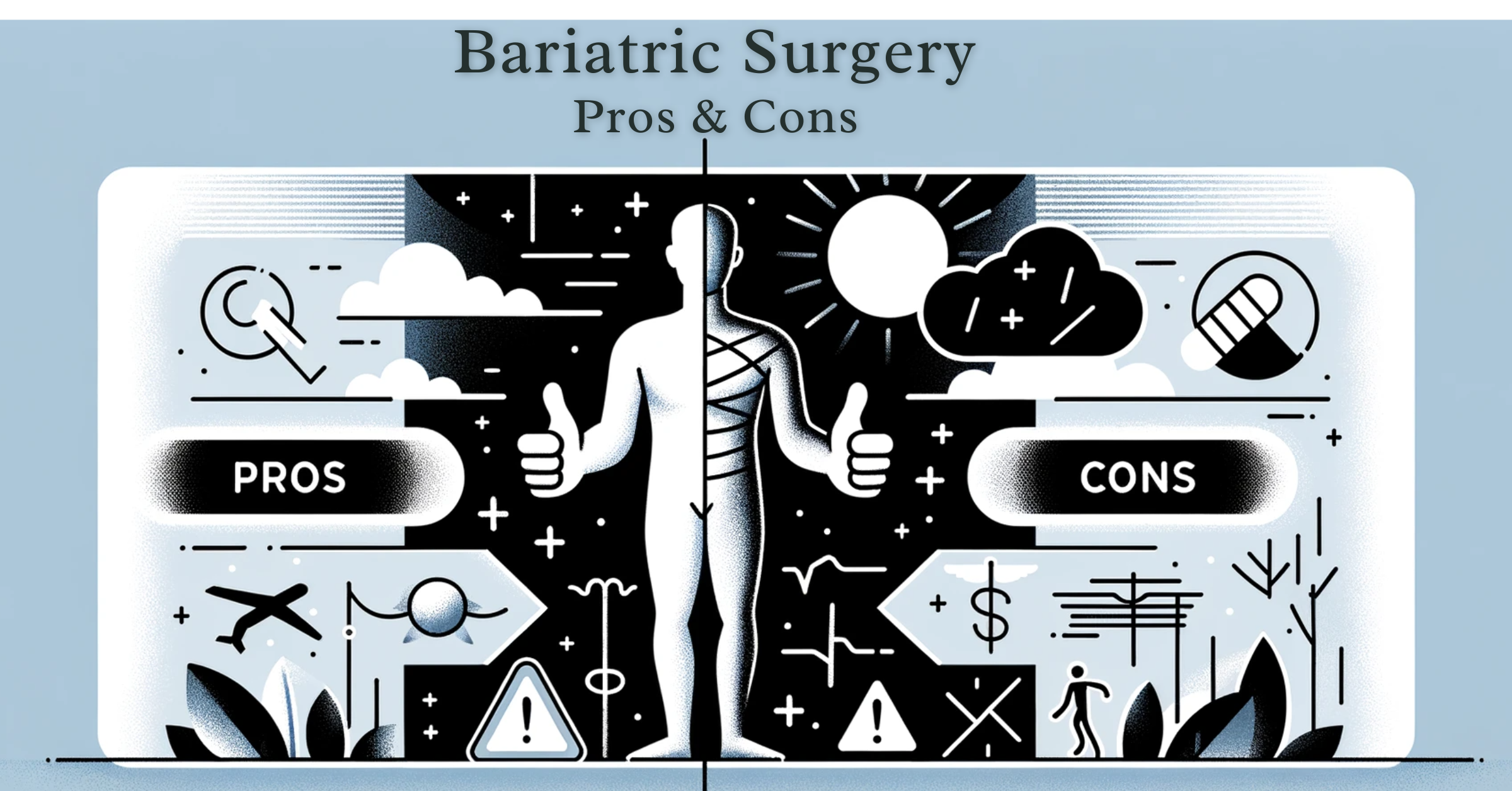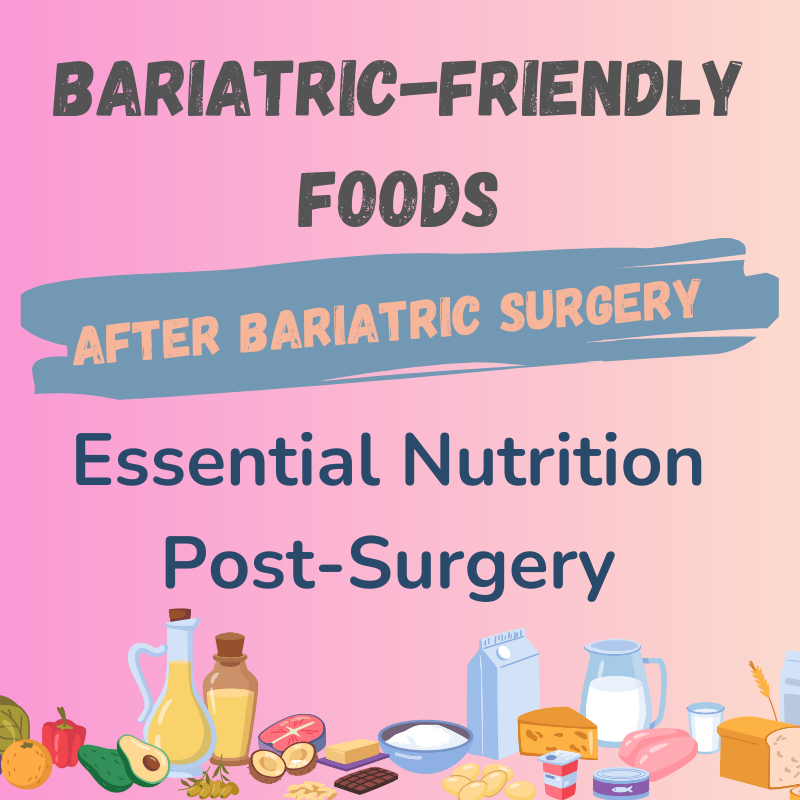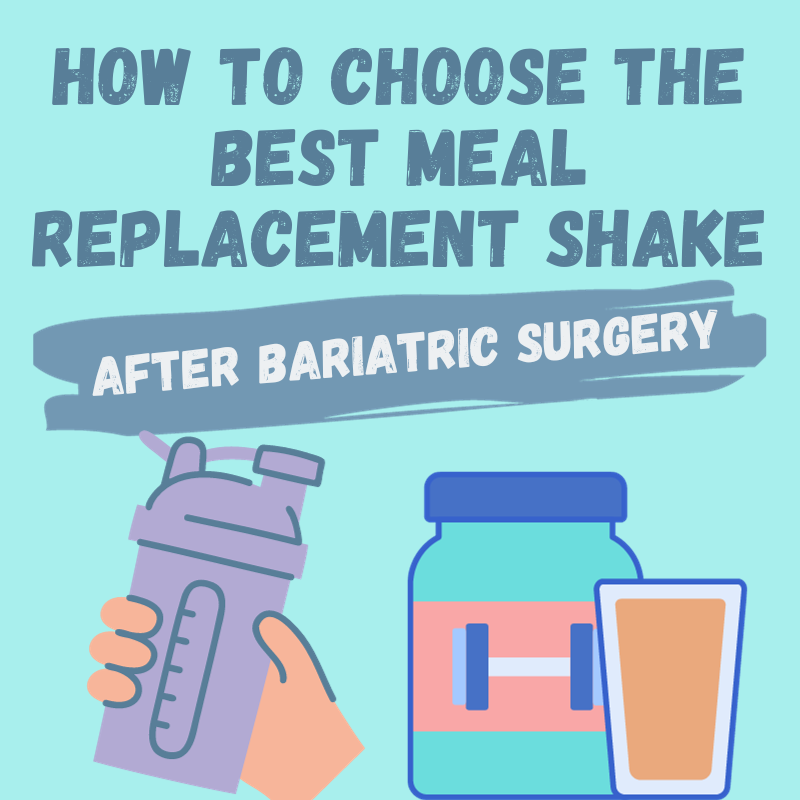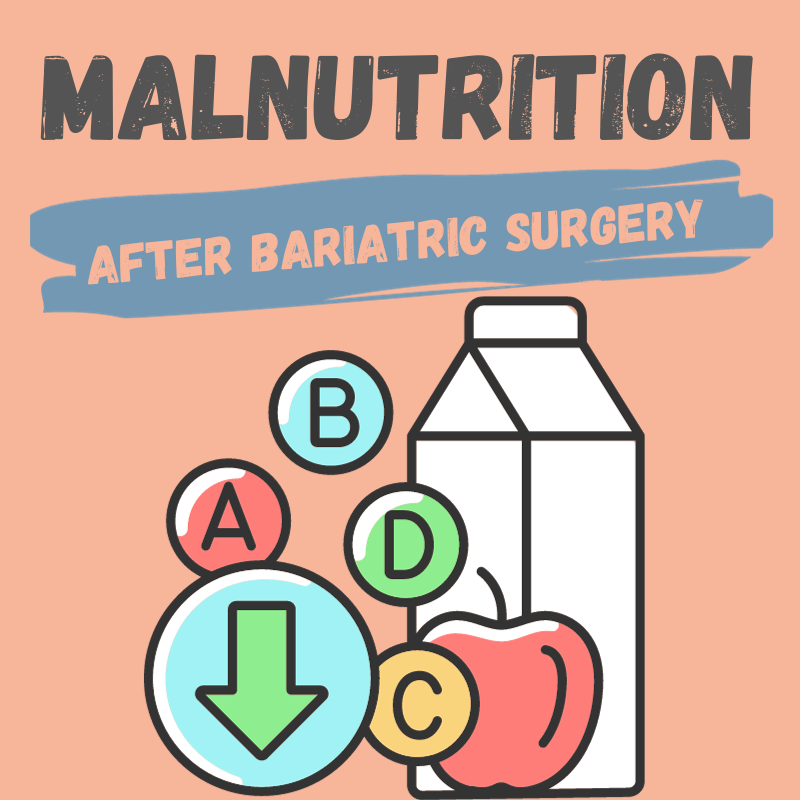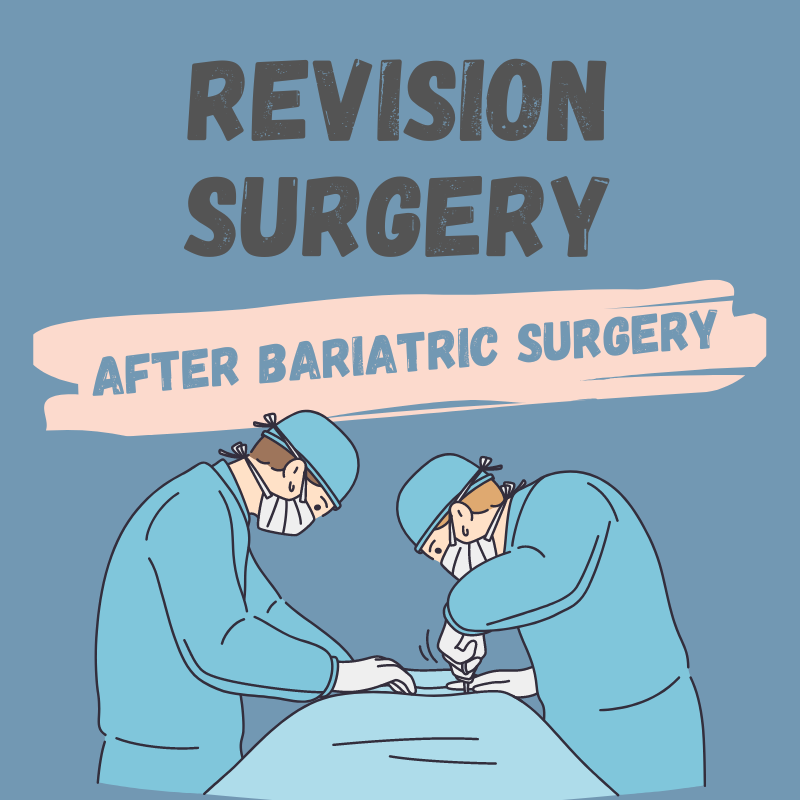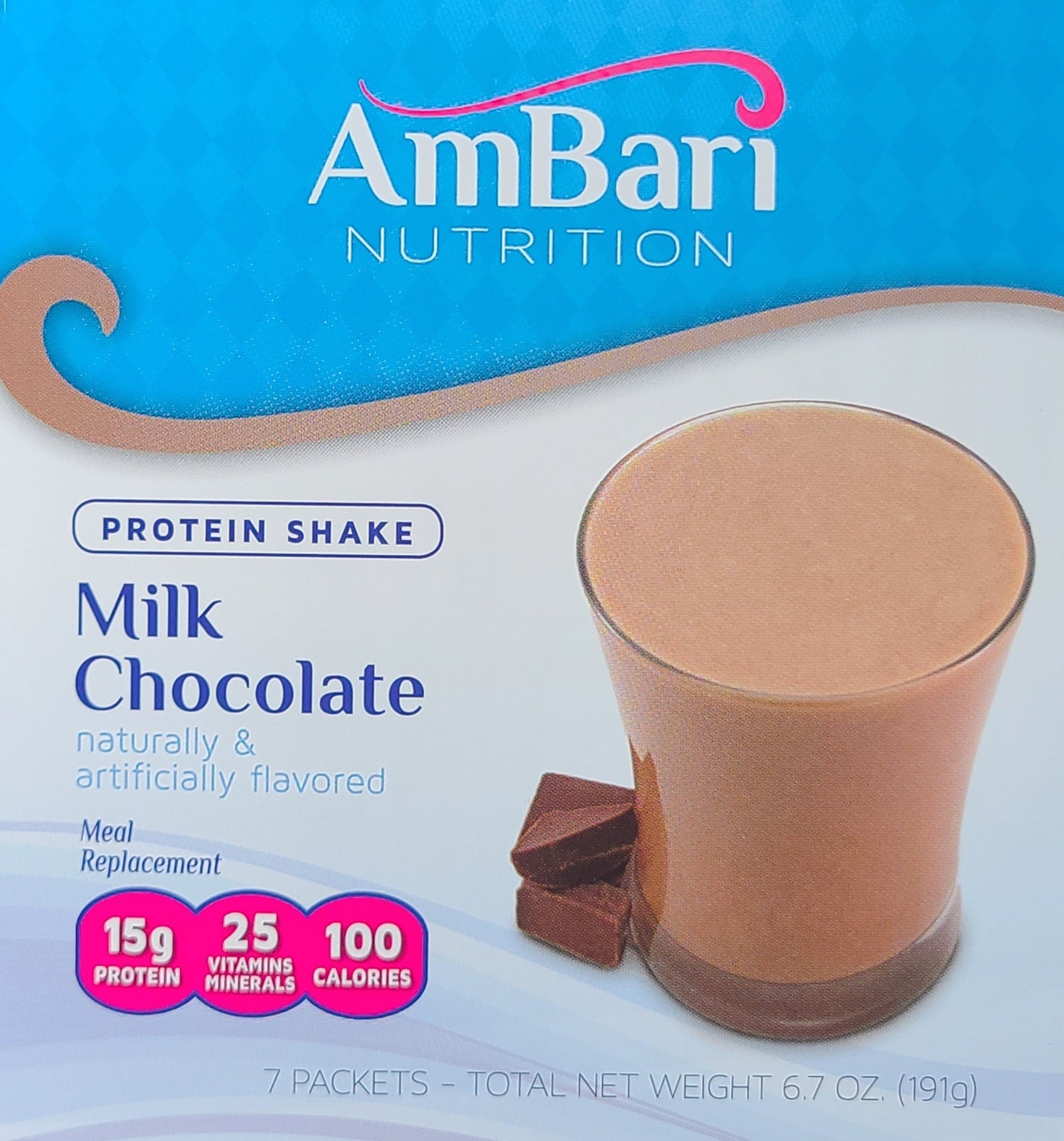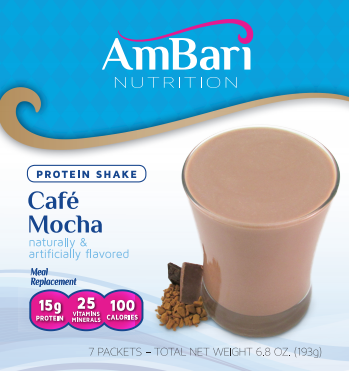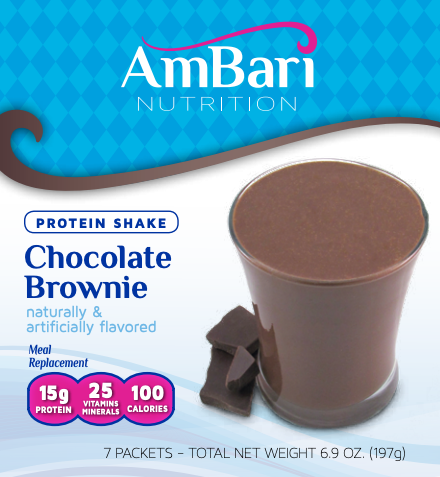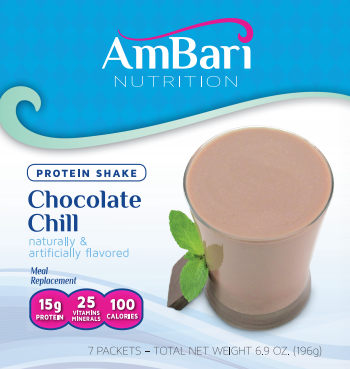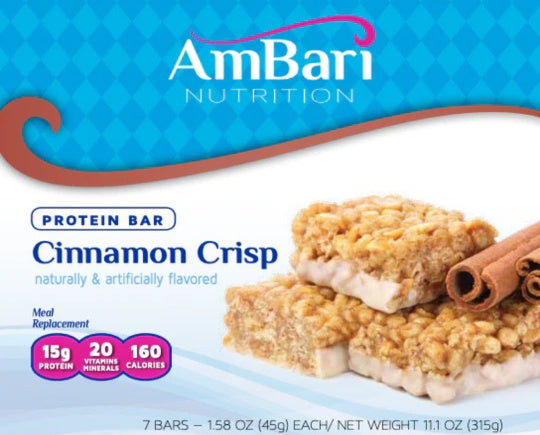Your cart is empty
The Bariatric Diet: Eating After Gastric Sleeve or Gastric Bypass Surgery
The Bariatric Surgery Diet: Eating After Gastric Sleeve or Gastric Bypass

The bariatric diet is a structured eating plan designed specifically for people who have undergone bariatric surgery procedures like gastric bypass or sleeve gastrectomy. It involves following a progressive meal plan that starts with liquids only, transitions to pureed foods, then soft foods, and finally returns to solid foods over time. The goal is to help the post-surgery stomach and digestive system heal and adapt while promoting long-term weight loss.
The key principles of the bariatric diet include:
- Eating smaller, more frequent meals
- Chewing food thoroughly and eating slowly
- Focusing on high protein, low calorie, nutritious foods
- Avoiding high fat, high sugar foods
- Staying hydrated with adequate fluids
- Taking vitamins and supplements as recommended
- Stopping eating when feeling comfortably full
By following these dietary guidelines, patients can facilitate recovery, meet nutritional needs, achieve weight loss goals, and transition to sustainable healthy eating habits after surgery.
Understanding the Purpose of a Bariatric Diet
The bariatric diet provides important dietary guidelines after weight loss surgery to aid healing and facilitate long-term health.
Firstly, the bariatric diet utilizes a clear liquid diet in the initial recovery stages. This allows the stomach to heal without being stretched after bariatric procedures that reduce its capacity. Clear liquids are recommended for the first 1-2 weeks post-surgery.
Secondly, the bariatric diet transitions to a full liquid diet as the stomach continues healing. Full liquids like protein shakes, yogurt, and pureed foods are introduced in controlled portions that the post-surgery stomach can handle. This helps patients adjust to consuming smaller amounts in keeping with their new anatomy.
Finally, the bariatric diet aids sustainable weight loss and avoids potential complications from weight loss surgery like dumping syndrome. The dietary guidelines focus on nutrient-dense foods that promote satiety without excess calories. This supports weight management while steering clear of foods that may cause digestive issues.
Overall, the staged food introduction and healthy meal plans in the bariatric diet provide essential nutritional support after weight loss surgery. The guidelines help patients heal safely, meet nutritional needs, and transition to healthy eating habits you will carry for the rest of your life.
4 Stages of a Bariatric Diet

Stage 1 - Liquids:
- Focus on clear, high protein liquids only for the first 1-2 weeks post-surgery. Goal is 60-80g protein per day.
- Sample liquids: whey protein shakes, broth, unsweetened nut milk, water, sugar-free gelatin.
- Portion size: 1-2 oz per serving, sip slowly over 15-30 minutes.
- Supplement with vitamins & minerals as recommended.
Sample Meal Plan: Breakfast - 1 serving bariatric-friendly protein shake (2 oz) Lunch - Chicken broth (1 cup) Dinner - Sugar-free gelatin (1/2 cup), whey protein shake (2 oz)
Stage 2 - Pureed Foods:
- Introduce smooth, pureed foods like yogurt, mashed fruits/veggies. Goal is 60-70g protein per day.
- Portion size: 1/4 cup pureed food per serving.
- Sample foods: Greek yogurt, mashed avocado, pureed soups, applesauce.
Sample Meal Plan: Breakfast - Greek yogurt (1/4 cup) + whey protein (1 oz) Lunch - Pureed vegetable soup (1/2 cup) Dinner - Pureed chicken, broth, mashed potatoes (1/4 cup)
Stage 3 - Soft Foods:
- Transition to soft, moist, well-chewed foods. Goal is 60-80g protein.
- Portion size: 1/2 cup per serving.
- Sample foods: scrambled eggs, tuna salad, baked fish, well-cooked pasta, soft fruits/cooked veggies.
Sample Meal Plan: Breakfast - Scrambled egg (1/2 cup), oatmeal (1/4 cup) Lunch - Tuna salad (1/2 cup) Dinner - Baked fish (1/2 cup), mashed sweet potato (1/4 cup)
Stage 4 - Solid Foods:
- Gradually return to solid foods. Focus on lean protein, fruits/veggies. Goal is 60-100g protein.
- Portion size: 1 - 1.5 cups per meal.
- Sample foods: grilled chicken, beans, raw veggies, whole grains.
Sample Meal Plan: Breakfast - Omelet with veggies (1 cup) Lunch - Grilled chicken & salad (1.5 cups) Dinner - Chili with beans (1 cup), roasted broccoli (1/2 cup)

Guidelines for Success on a Bariatric Diet
To maximize the benefits of your new diet after weight-loss surgery, here are some key guidelines:
- Drink at least 8 cups of fluids a day to avoid dehydration.
- Chew food thoroughly to a pureed consistency before swallowing.
- Prioritize high-protein foods in your meals following bariatric surgery.
- Avoid foods high in fat and sugar to prevent dumping syndrome, a condition where food moves too quickly from the stomach to the small intestine.
- Take recommended vitamin and mineral supplements daily as directed by your health provider.
Potential Risks and Complications
If you don't learn to properly eat after bariatric surgery the right way, you could run into some problems. These could include dumping syndrome (when food moves too quickly from your stomach to your small intestine), getting dehydrated, getting constipated, and either gaining weight or not losing weight. But don't worry, you can avoid these risks. All you need to do is stick to the diet's guidelines and keep in touch with your doctors regularly.
Continue reading: Learn about the potential risks and complications of bariatric surgery
Transitioning to a New Healthy Diet
Finishing the structured bariatric diet is an important milestone, but adopting a lifetime of healthy eating habits is crucial for long-term weight management and wellbeing. Here are some tips to maintain your progress:
- Continue eating 5-6 small, nutritious meals spaced throughout the day. Keep portions around 1 cup or less per meal to prevent overeating.
- Make lean protein like fish, poultry, eggs, Greek yogurt and nuts the star of your plate at each meal. Aim for 60-100g of protein daily.
- Fill half your plate with non-starchy vegetables and fruits at meals to provide vitamins, minerals and fiber.
- Choose whole grains like oatmeal, brown rice and 100% whole wheat bread over refined grains. Limit breads, cereals and starches to 1/4 of your plate.
- Stay hydrated by drinking 64+ oz of calorie-free fluids daily like water, unsweetened tea and coffee.
- Avoid beverages with calories like juice and soda as well as fatty, sugary treats to prevent weight regain.
- Take daily vitamins tailored to bariatric patients to maintain nutritional adequacy. Calcium citrate, vitamin B12, iron and vitamin D are essential.
- Exercise regularly combining cardio and strength training to preserve lean muscle mass as you lose weight.
- Join a support group or seek counseling if struggling with food cravings or emotional eating.
Adopting healthy eating habits for life after bariatric surgery is crucial for maintaining your hard-earned weight loss results and good health. Small sustainable changes add up to lifelong success.
Continue reading: Learn about nutrition in your life after bariatric surgery
Conclusion
A bariatric diet is more than just a post-surgery meal plan—it's a lifestyle change that encourages healthier eating habits and promotes long-term weight management. Remember, everyone's journey is unique, and it's important to stay in contact with your doctor and surgeon for personalized advice.
Here's to your health and well-being on this transformative journey!
Author: Allison Allison, a certified nutritionist and research author, brings over 15 years of experience in the health and weight loss industry. Allison's influence extends through her authorship of multiple health and wellness journals, where she shares her expertise and research on medical weight loss and bariatric medicine. |
Reviewed By: Dr. K. Huffman Dr. Kevin D. Huffman, D.O., is a board-certified bariatric physician renowned for his expertise in treating obesity. With over 10,000 patients and a reputation as a national leader in bariatric medicine, he has trained hundreds of healthcare providers. As the founder of American Bariatric Consultants, Dr. Huffman develops protocols and training materials sought after by medical societies, pharmaceutical companies, patients, and hospitals. |
Bariatric Guides & Information
More Info
Customer Favorites
- Choosing a selection results in a full page refresh.







